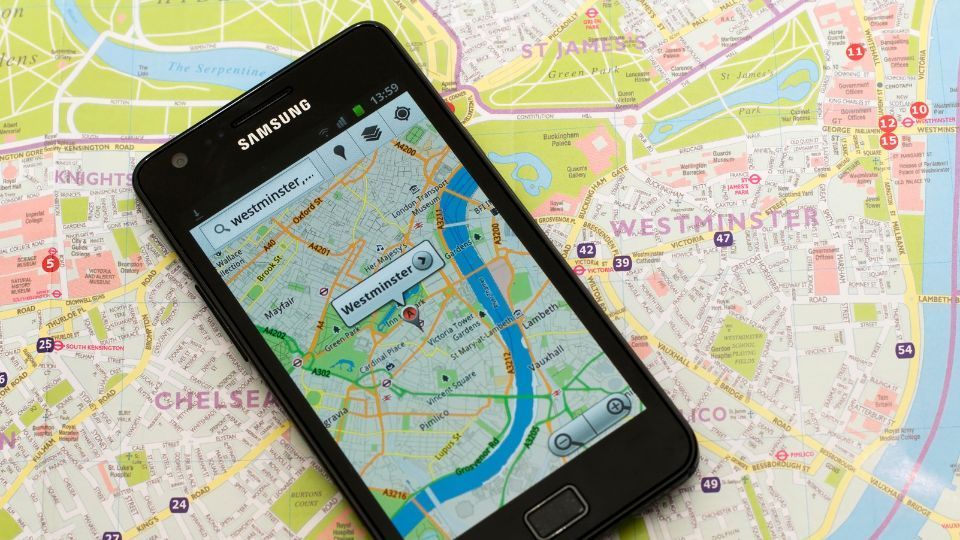Link up with us on social media
10 Things Every Small Business Website Needs
Today’s business climate demands small businesses to be at the forefront of competition and innovation. But in an already crowded field, with every major competitor spending millions to target the same small segment of the market, how can you stand out? A customer-oriented, business-focused website that puts you in the driver’s seat with everything you need to grow and succeed is a great start.
In fact, in today’s highly digitalized world, your website is more than just a place to promote your products and services. It’s your first step to building a relationship with your potential customers and prospects – the foundation for growth and success.
However, creating a custom-tailored website for your small business is not without its fair share of challenges. It requires a strategic approach, a deep understanding of designing principles, and diligent attention to detail. Fortunately, realizing your vision doesn’t have to be a struggle. To help you kickstart your small business website, we’ve compiled a list of the ten most important things every small business website needs.
1. A Professional-Looking Logo

A brand logo is a critical component of any business’s visual identity. It’s the first thing your customers see, and it helps establish the tone and direction of your business. It also works like a calling card for potential clients and allows them to recognize your name when they see it.
In short, a professional-looking logo is essential for creating a strong brand identity that resonates with your customers and helps instill a sense of trust and credibility.
Fortunately, creating a logo for your small business is easier than you might think. You can either use several free and low-cost online AI-based logo generators or hire someone professional on freelancing platforms to craft you a logo that resonates with your business’s image.
2. Professional Photos of the Company’s Employees and Office Space

People are visual creatures, and the way you look affects your credibility. When potential customers are trying to figure out if your business is right for them, they’ll look at the photos of your office space and the images of your employees and founders. If they don’t like or find what they see, they’ll move on to the next business. So, it’s essential to have high-quality photos of your office space that showcase your company in a professional light.
Furthermore, you should also have photos of your employees in action that help define their job functions and roles within the company. And though at first, this may seem unnecessary, believe us when we say that it will be the deciding factor for many customers – especially corporate clients – when they’re trying to decide whether or not to work with your small business.
3. Clear, Concise Description of What the Company Does

It may sound like a no-brainer, but it’s astonishing how many business websites fail to explain what their company does in clear, concise terms. After all, if you can’t clearly articulate what you do for customers, how can they make an informed decision about whether or not to conduct business with you? So, unless you want to lose clients before you even get started, provide potential clients with a clear description of your product or service —and don’t assume that just because you know what your company does that everyone else knows as well.
Your company needs a concise statement of purpose that explains what services or products you provide, from meta descriptions to social media profiles to landing pages and website copy. In fact, you need that regardless of whether or not your site includes additional explanatory text. Nothing says I have no idea what I’m doing, quite like vague marketing copy.
4. List All Services Offered by Your Business
Offering different services can be an excellent way to increase your business’s exposure to different markets and expand your revenue base. But how do your customers know what you offer and how to reach out? Your website is often one of, if not THE most important marketing tool for your business—even in today’s social media-dominated world.
So, it stands to reason that you want it to list all of your services in an easy-to-find place. From header navigation to footer links, put links to your offering in every area where people might possibly look for information. In fact, the more visible and accessible your service offerings are, the better.
Customers will see it as proof that you really do offer everything they need, and it will also enhance the user experience since users won’t have to dig too deep to find what they are looking for.
5. Contact Information for Both a Phone Number and an Email Address
Your website is a crucial marketing tool for your small business. It’s your first point of contact with your customers, and it helps them understand what you do, who you are, and how they can get in touch with you.
But as important as your website may be, if no one has any way to contact you, then it’s going to have a hard time being effective. So, keep both a phone number and an email address on your site so that people have multiple ways to reach out to you.
You might even want to include some social media links so that people can find you on Facebook or Twitter and social media platforms to better communicate with you on your terms.
6. Social Media Links to Stay in Contact with Customers on Facebook, Twitter, Instagram, Etc.

Today, social media is more than just a channel for communicating with your friends and family members. It has become a tool for driving customer engagement and nurturing leads into the sales funnel.
In fact, it empowers your customers to connect with you in real-time and provides you with the opportunity to communicate directly with them on their terms.
That’s why having an online presence via Facebook, Twitter, LinkedIn, or YouTube (to name a few) is absolutely crucial for every small business owner looking to reach new clients online.
Furthermore, you must also include your social media links to your website to give your visitors a better chance to connect, engage and conduct transactions with you.
7. Don’t Forget Google Maps

Google maps have become a staple of online navigation, and for a good reason. It is a reliable, easy-to-use mapping service that has become the de facto standard for millions of people around the world.
Moreover, its seamless integration with Google My Business is an essential tool for small businesses looking to improve their exposure and visibility on Google and beyond. Not only does your business listing on Google Maps provide your customers with detailed information on how to reach your physical location, but it also gives your business a significant advantage over your competitors by positioning you as a local, trusted business.
So, when developing a website for your small business, make sure to include Google Maps in the contact page or somewhere in the footer area to better serve your customers.
8. Add Call to Action
The purpose of any marketing is to drive action and lead visitors into a sales funnel. If you want your website to be effective, then your home page and other service pages on your site must include a call-to-action (CTA) that’s both relevant and compelling for your visitors.
After all, every visit must end with some sort of desired action or response from your visitor; otherwise, it’s not worth their time (or yours).
So, make sure to keep CTAs visible on most pages of your website by adding them to hero sections and within the content and footer areas of each page.
9. Track Website Performance with Google Analytics

Your website is an essential tool for customer engagement and lead generation, so it’s crucial that you know how well your site is working. In other words, you must have a system in place to help you identify which pages on your site are getting more traffic, generating more leads, and driving more revenue and which aren’t.
To do that, however, you need a software solution that can give you real-time insight into who’s visiting your site and what they’re doing while they’re there, and if their actions are actually impacting your business on positive or negative terms.
A good way to track these activities is through Google Analytics, an analytics platform from almighty Google that empowers you to measure important metrics like page views, unique visitors, bounce rate, time spent on each page of your site, etc., all in one place.
You can even create custom events to track specialized actions like open rates, sales, conversions, and more without needing to program or install any 3rd party scripts.
10. Add Customer Testimonials to Instill trust
It’s a well-known fact that people prefer to do business with businesses they trust, and your website is no exception to that rule. That’s why it’s critical for you to showcase social proof, such as testimonials and case studies, on your site to instill trust in your visitors and boost conversion rates.
Conclusion
As a small business owner, you want your website to stand out from thousands of other small business websites and engage as many potential customers as possible. Although creating a website from scratch can be a daunting task, it’s not as hard as it seems. Start by doing research on what similar businesses are doing to make their websites work for them. Once you have an idea of what you want, then start building your site and making adjustments where necessary. Good luck!

Darren Chambers
Digital Marketing/ Web Development Specialist
TWD of Atlanta, GA
Post Published on:











